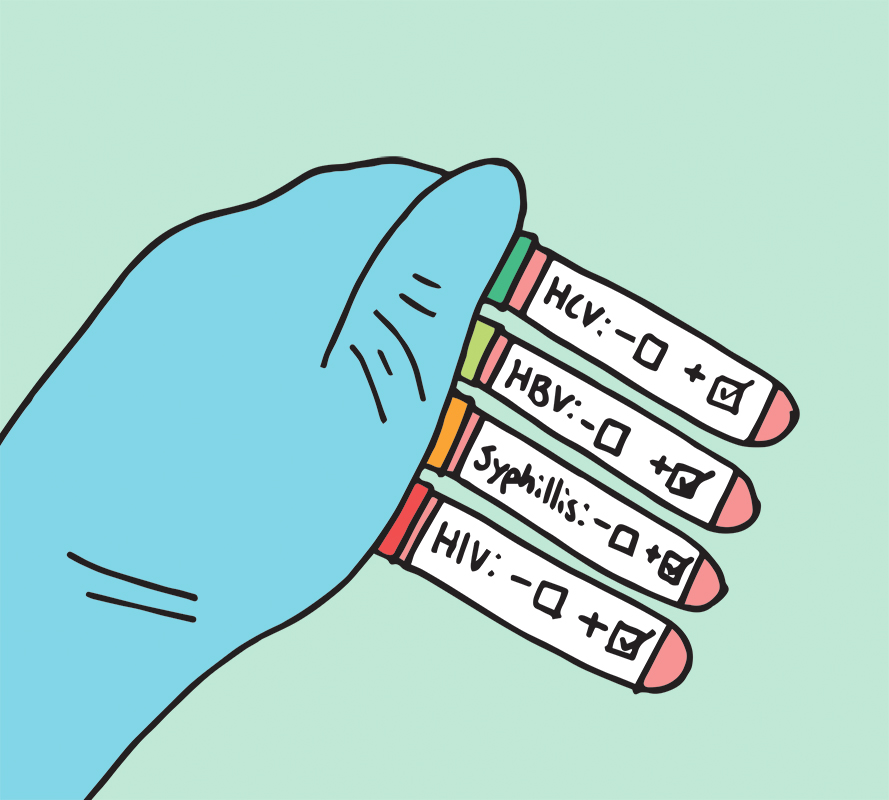Concordia to offer free rapid HIV testing pop-ups and film screening
In a country where it is a crime not to disclose that you have HIV before having sex, it’s no wonder having an STI comes with so much stigma.
Canadians who are HIV positive can face criminal prosecution for reasons like forgetting to use a condom or failing to alert their sexual partner of their illness before engaging in sexual activity. These people can be charged with aggravated sexual assault, which carries a mandatory designation as a sex offender and a maximum penalty of life in prison.
While these laws are in place for the sake of public health, they might deter people from getting tested. If you don’t get tested, then you can claim ignorance. If you aren’t absolutely certain you have HIV, you can’t be held legally responsible—right?
Unfortunately, this is the worst time in recent history to practice non-disclosure and unsafe sex. According to the Community AIDS Treatment Information Exchange (CATIE), the prevalence of HIV in Canada is increasing and has been since the late 90s. In 2014, an estimated 75,500 Canadians were living with HIV. This number represents an increase of 6,700 people, or 9.7 per cent, since 2011.
CATIE’s website states that more than one in five people living with HIV are unaware that they have the disease. This is extremely dangerous because HIV is a virus that anyone can contract, regardless of their gender or sexual orientation. The illness is most often contracted through sexual contact or needle use. According to the Centres for Disease Control and Prevention (CDC), bodily fluids—such as blood, semen, pre-seminal fluid, rectal fluids, vaginal fluids and breast milk—from a person who has HIV can transmit the virus to someone when they come in contact with mucous membranes (including the rectum, vagina, penis and mouth), damaged tissue or the bloodstream in any way.
In a university setting, where many young adults begin to experiment with sex and drugs—and sometimes both, together—students may be putting themselves at a higher risk of infection as a result of limited or no condom use. Luckily, resources to increase sexual education, STI prevention and knowledge about treatment options are available to students now more than ever—you just have to know where to look.

If you think you have an STI
If you’re a Concordia student and you’re worried you might have an STI, you can book an appointment for STI testing Monday through Friday at Concordia’s Health Services on either campus. If you’re experiencing symptoms, you book an appointment with a Health Services physician. If you don’t have symptoms, you can see one of the nurses. There are also a variety of other places around the city where you can get tested for STIs, including CLSCs, Head & Hands and a number of clinics in the Gay Village.
It will take approximately 10 to 14 days for Concordia’s Health Services to receive your test results. You must come to the clinic in person to get them, either through the walk-in clinic or by appointment, where a nurse will explain your results to you and refer you to the appropriate treatment options, if necessary.
The Concordia website warns that it is the patient’s responsibility to follow up after an STI test, noting that students should “never assume that ‘no news is good news.’”
Even if you are convinced you don’t have an STI, testing is recommended for everyone who is sexually active. Many infections show no symptoms, so Concordia’s health professionals recommend students get an STI screening done every six months to a year.
If you’re at high risk for HIV
If you’re planning on having sex with someone who may have an STI, use a condom. Using condoms properly and regularly is the only form of contraception that also reduces the risk of getting or transmitting an STI.
For students at a higher risk of contracting HIV from a partner or through injection drug use, Concordia can also supply you with pre-exposure prophylaxis (PrEP). PrEP is a preventative medication that people with a very high risk for contracting HIV can take regularly to lower their chances of getting infected. According to HIV.gov, prescription guidelines recommend that PrEP be considered mainly for people who are HIV negative and in an ongoing sexual relationship with an HIV-positive partner.
PrEP can only be prescribed by a healthcare provider. Concordia students can book an appointment with a Health Services physician to discuss whether or not it is the right HIV prevention strategy for them.
Without health insurance (public or private), the monthly cost of PrEP can be up to $995, according to Rézo Santé, an organization that provides gay and bisexual men with sexual, mental, social and physical health information. However, if you are covered by the Régie de l’assurance maladie du Québec (RAMQ), PrEP is covered under your plan. However, unless you have received an exemption, there would still be a monthly fee (as of 2015) of up to $83.33.
Montreal pharmacist Maciek Zarzycki told The Concordian that, while PrEP is effective for preventing HIV, it might not be the most cost-effective prevention method.
“It is significantly more cost-effective to use condoms,” Zarzycki said. “For PrEp, you need a prescription from your doctor, as well as a form filled out by your doctor that would approve you to be covered by insurance.” He also noted that PrEP can have several adverse side effects, such as a negative impact on liver health and cholesterol levels.
“Considering the side effects and the cost, it is not the best solution,” said Zarzycki. “Condoms are just as effective in HIV prevention, are significantly less expensive and do not give you any side effects.”
HIV resources at Concordia
Concordia’s HIV/AIDS Project’s mission is to provide a permanent space for dialogue and research on HIV/AIDS and to support students who might be the next generation of HIV/AIDS researchers, activists and teachers. They offer community lectures, courses and internships for students. Their next event will be a film screening of Memories of a Penitent Heart, a documentary that “explores the relationship between memory, stigma and the AIDS crisis,” at 7 p.m. on Feb. 15 at the Montreal Museum of Fine Arts. The screening will be followed by a discussion with the filmmaker, Cecilia Aldarondo.
Concordia Health Services and the Concordia Student Union (CSU) will be offering a free, three-day, rapid HIV testing clinic this month. Testing at the pop-ups will be confidential, and the whole process will take only 20 minutes. Patients will simply be required to fill out a health questionnaire and briefly meet with a nurse to review the form. After the nurse collects a few drops of the patient’s blood by pricking their finger, they will receive their results about a minute later and have a post-test discussion with the nurse.
The free, rapid HIV testing clinics will take place downtown at the CSU in room H-711 on Feb. 13 and 14, and at the Loyola Hive on the second floor of the Student Centre building on Feb. 15, from 12 p.m. to 4 p.m.
Graphic by Zeze Le Lin




